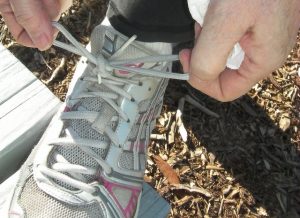Lifestyle Strategies That Support Binge-Eating Recovery
 Although there are no home remedies for binge-eating disorder, there are lifestyle changes people can make that will support their current recovery plan.
Although there are no home remedies for binge-eating disorder, there are lifestyle changes people can make that will support their current recovery plan.
Because these changes promote good self-care they may help individuals alleviate eating disorder symptoms, but they are primarily intended to support mind and body health during the recovery process.
Lifestyle Strategies
Use the following self-care steps as an adjunct to your present treatment plan. Though they are recommended by the Mayo Clinic, let your treatment team know about any lifestyle changes you wish to make.
Stay true to your treatment plan. Be determined to attend all your scheduled therapy sessions, and adhere to dietary guidelines. Be equally determined that any setbacks will only serve to strengthen your recovery resolve.
If you are not in treatment, consider talking to someone about what a treatment plan for you might look like.
Start the day with breakfast. Binge-eaters often skip the first meal of the day. However, if people eat breakfast they may be less prone to eating larger meals later.
Don’t diet. Those with binge-eating disorder need food management strategies that are supervised by a doctor or other health professional. However, attempting to diet on your own may only serve to trigger binge-eating episodes.
Get necessary nutrients. Eating a lot of food does not guarantee you have been getting the nutrition your body needs. Talk to your doctor about whether vitamin and mineral supplements would be beneficial.
Keep moderately stocked cupboards. Consider keeping less food in your refrigerator and pantry than you typically do. Though you might have to run to the grocery store more often, there will be less temptation at hand, and less available means to impulsively binge.
Keep moving. Talk to your treatment providers about what types of physical activity suit your present health and fitness level, and then get moving.
Connect with family and friends. Isolation is detrimental to most people’s mental and emotional health. If you need to, enlist the help of your doctor, dietician, or therapist to help you talk to others about your eating disorder.
Consider mind-body therapies. Therapeutic touch, massage, yoga, biofeedback, and hypnosis are therapies that can help people manage anxiety and impulses. They promote relaxation, self-awareness, and self-acceptance. If any of these practices interest you, discuss using them with your treatment team.
Photo credit: Ray Sawhill (@flickr)
 Eating Disorder Self Test. Take the EAT-26 self test to see if you might have eating disorder symptoms that might require professional evaluation. All answers are confidential.
Eating Disorder Self Test. Take the EAT-26 self test to see if you might have eating disorder symptoms that might require professional evaluation. All answers are confidential.